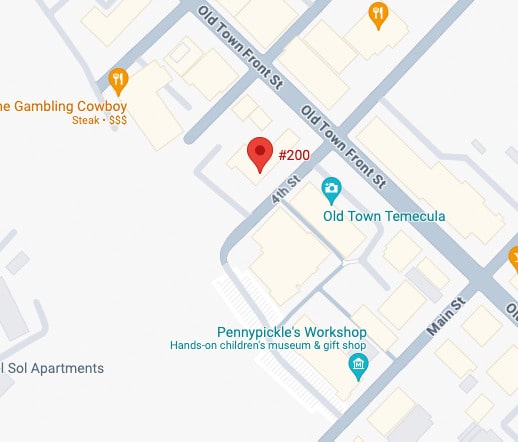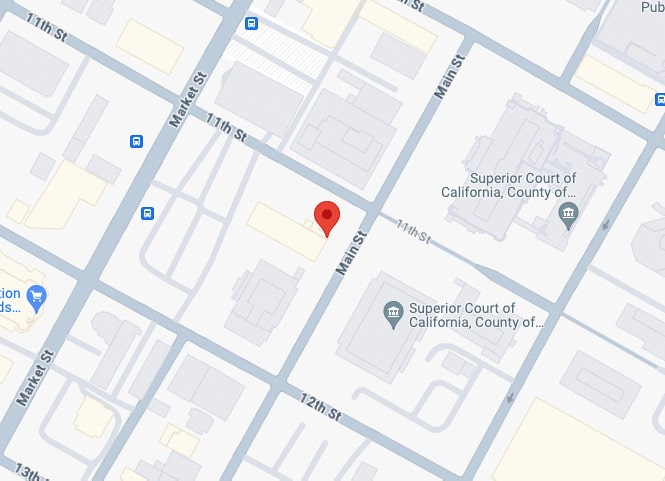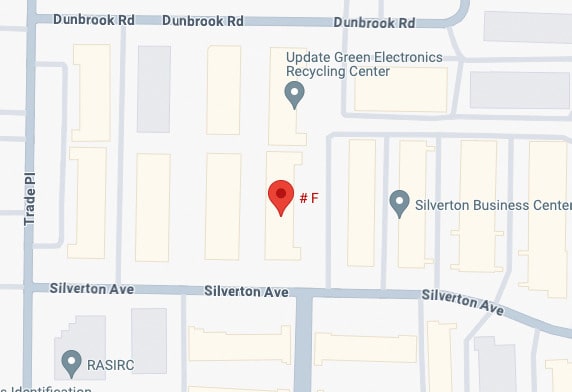In California, most criminal defendants have the right to secure a release before trial. This allows you to go home and spend time with your family in challenging times. The release is possible by posting a specific amount of money to the court. Often, the bail money guarantees that the defendants will show up to court and follow through with other court-imposed requirements for their release. When posting bail for a loved one, you want them to go home with you and avoid jail time. However, recovering your money will still linger in your mind.
Bail is not a punishment for committing a crime in California. Therefore, the money is non-refundable to the payer after the case ends. Whether or not a defendant faces a conviction will not impact your ability to recover the bail money. The process of recovering bail money is almost the same for cash bail, property bond, and bail bonds. Having a skilled bail bond agent on your side could make acquiring and recovering bail easier.
The fate of your bail money depends on the defendant's adherence to court sessions and ability to follow through with the bail conditions.
Bail Exoneration
If you or your loved one faces an arrest for committing a crime in California, you will post cash bail, property, or bail bonds. After the case ends and the defendant meets all the obligations required by the court, you can recover your money. The process of recovering bail money varies depending on the method used:
1. Recovering Cash Bail
If you post cash bail, you will present the full bail amount before the court before your loved one isis released with a pending case. Most people who post a cash bail have the financial capacity needed to produce the money. When recovering the bail money, the court will return the full amount to the payer regardless of the outcome of your case.
You can recover the money immediately if the defendant is found not guilty. However, if the case ends in a guilty verdict, you must wait for the sentencing to receive a refund.
2. Recovering Property Bond
California law allows defendants to put up the real property value in exchange for a release from detention before trial. The court puts a lien on your property until your case ends. When the judge gives their verdict in your case, you proceed to jail to go home with an acquittal. The court lifts the lien on the property.
3. Recovering Bail Bonds
If you do not have money or property to secure a loved one’s release from jail before trial, you can contact a bail bond company for assistance. Bail Bond companies offer the financial help and guidance you need to navigate the bail posting process. When you post a bail bond, the bail bond company agrees with the court.
If the defendant appears for their trial and does not violate any bail conditions, the bail bond agent can recover the company’s money from the court. The most valuable part of posting a bail bond is that you do not present any money to the court. Therefore, the bail bond company will undergo the refund process. After the surety company has recovered their money, they will return the collateral you used to secure the bail bonds.
While the collateral and bail bond money are refundable, you must understand that the bail bond premium or service fee is non-refundable.
4. Recovering Immigration Bond Money
Immigration bonds are paid by a United States Citizen for an immigrant facing criminal charges or facing charges for being in the US illegally. If you post a voluntary departure or delivery bond, you can recover your money during the process. When the immigrant meets all their immigration bond conditions, Immigration and Customs Enforcement must send you a notice of immigration bond cancelation.
Additionally, the notice is sent to the Department of Homeland Security, notifying them of the end of your obligation to the bond. If you move between the time you pay the bond and the time of cancellation, the ICE will send the notice to your old address. You can avoid the inconvenience by notifying them of your new address. When you receive Form I-391, you will be required to mail it to the Debt Management Center together with Form I-305.
If you have lost or misplaced your Form I-305, you can find it in the forms section of the ICE website and print the document. The following documents must be included in the envelope you send to Debt Management:
- Original Form I-305 or a notarized Form I-385.
- Form I-391.
- Copy of the bond contract. If you post an immigration bind using the services of an immigration bail bond company, you must sign an agreement. Therefore, when seeking a bond refund, you must send in the contract to ensure that the money is returned to the payer.
When the Debt Management Department receives your documents, they will process your refund, which can take several months. After processing, you will receive the full bond amount plus interest accrued throughout the years or months that your court proceedings lasted.
If you post a voluntary departure bond, the main requirement from the ICE is that the defendant leaves the country within the specified period. Therefore, you can only recover the money once you present evidence of their departure. You can obtain this evidence from the United States consulate or embassy abroad.
If an immigrant for whom you posted bail left the US before the completion of immigration proceedings, you could still recover the bond money. However, you must procure evidence like passport stamps and boarding oases to ascertain that the defendant has left. After providing these documents, you will follow a similar procedure of recovering the bond money.
Bail Forfeiture
Bail forfeiture occurs when the courts hold onto the money used for bail. Often, a release on bail is granted under the condition that a defendant must appear for court proceedings and follow through with other court requirements. Whether you exchange money for the release or a fortunate to secure a recognizance release, you must follow the conditions. Bail forfeiture causes the payer to lose the full amount put up as a bond. The following factors could attract a bail forfeiture:
-
Skipping Bail
The most important requirement of securing a bail release is to show up to trial and follow through with your case. Unfortunately, some defendants take the early release as an opportunity to escape justice by leaving the country or going into hiding. When you post bail for a loved one or friend, you ensure their appearance as scheduled. Failure to appear could result in bail forfeiture.
In addition to bail forfeiture, the court will issue an arrest warrant to return the defendant to jail. Therefore, you will lose the money, and the defendant will remain in jail. If you post bail for someone, you must always ensure that they show up to court, and if there is a likelihood of fleeing, you can cancel the bail and save your money.
-
Violation of a No-Contact Order
In many violent or domestic violence cases, the court will release you on condition that you will avoid all contact with the alleged victim of your actions. The court imposes this condition to respect your right to bail and maintain the integrity of the alleged victim. If you violate the no-contact order, you risk a bail forfeiture.
-
Rearrests and Failed Drug Tests
While out on bail, you should avoid all criminal activity. Additionally, you must undergo random drug and alcohol tests. Therefore, an arrest for a misdemeanor or felony during this time violates your bail and could result in forfeiture.
If you posted cash bail, the court holds on to all the money you presented when the bail is forfeited. On the other hand, forfeiture of property bonds means that the court could resell the property you offered as a bond to recover the money.
When you enter a bail bond agreement with a surety company, the bail bond agent expects the defendant to show up to court. Unfortunately, many take advantage of the fact that bail bonds are cheap to skip bail. Bail bond companies lose a lot of money in bail forfeitures in California.
Defending Against Bail Bond Forfeiture
A bail bond company has a few options after receiving a notice of bail and forfeiture from the court:
Present the Defendant
A bail bond company ensures a defendant does not flee after posting bail. Therefore, before the court forfeits the bail bond, the company can find the defendant and bring them back to court. A prominent role of bail bond agents from movies and TV shows is bringing defendants who have fled back to court.
Since the surety company does not want to lose their money in a forfeiture, they employ bounty hunter services. A bounty hunter is a private investigator who locates individuals who fail to appear for trial and court proceedings after a bail release. The duties of bounty hunters require investigative work. Therefore, many of these individuals start as law enforcement officers trained and skilled in using computers and driver’s license tracking to locate different people.
Locating someone who goes into hiding can take time and resources. You will cover the cost as a co-signer to a defendant’s bail bonds.
Give Suitable Excuses for an Absence
Not all defendants fail to appear for trial following a bail release intentionally. Sometimes, there are credible reasons why someone cannot go to court on a scheduled date. For example, if you are sick and admitted to a hospital, the hospital cannot discharge you to attend a court hearing. Other credible reasons for failure to appear in court include the following:
- Date confusion. Arrests are very traumatizing experiences. If you're able to secure a release on bail, your mind may be so focused on returning to your normal life that you forget the date you need to appear in court. Additionally, you could be dealing with multiple legal matters, and a date confusion accidentally causes you to skip your court date.
- Death of the defendant. After posting bail for a defendant, the bail bond agent must stay in constant contact with the defendant to ensure they follow through with the release requirements. If a defendant dies, they cannot fulfill their obligation of returning to court. Unfortunately, the court handles many cases and may not find out about the death unless the bail bond agent notifies them. The surety company can save itself from a bail forfeiture by proving that the defendant is deceased.
- Confinement in a detention facility. If a defendant is in jail for committing a different offense, they may be incapable of appearing for trial. Therefore, bail bond companies must present the evidence of arrest to avoid a forfeiture.
- Mental disability. In California, a criminal trial will only proceed if the defendant is mentally stable and can comprehend the consequences of their actions. If your loved one is mentally unstable or in a mental facility, the court may put a hold on the bail forfeiture.
- Deportation. If a defendant is an illegal immigrant, the possibility of deportation is often high. If the bail bond company posts bail for such an individual and they face deportation before the trial, the company can avoid losing their money by resenting this justification to the court.
If the court finds that the failure to appear was unintentional and the reasons are satisfactory, they can hold the forfeiture proceedings. When the bail bond company successfully prevents a forfeiture, you can benefit from the situation since you won’t lose the collateral you placed.
Pay the Forfeited Amount
Reputable bail bond companies are well conversant with the court and jails in the state. Therefore, they do not always have to present the full amount to secure a defendant’s release from jail. However, the full amount must be produced when the defendant skips bail. If the bail bond company cannot find the defendant and has no valid excuse, they can pay the full amount and accept the court's consequences for the defendant’s failure.
When the bail bond company loses its money in a forfeiture, they seize and sell any property provided as collateral to recover its money. Often, the surety company asks for collateral if a defendant is a high-flight risk or has a history of disobeying court orders. As a cosigner to the bail bonds, you are responsible for providing the collateral. In such a situation, you will incur the cost of a bail bond premium and lose your property and lose your property or other valuable assets.
Bail Remission in California
There are circumstances under which the court can set aside a bail bond forfeiture in California. The bail bond company will file a motion seeking a refund for the forfeited bail money. Such a motion must be filed within one year of the forfeiture. Although the court has discretion in bail remission, the judge could consider the following factors:
Nature of the bail violation. Some bail conditions are more serious than others. A person who tests positive for a drug test may face different consequences from an individual who skips court dates or faces an arrest while out on bail.
Whether or not the violation was willful. Some bail violations are accidental. The judge could set aside the forfeiture if you prove that the defendant was not aware of the forfeiture expenses incurred to find the defendant. If the surety company can prove that the government was not prejudiced and did not suffer a loss in locating the defendant, the court may reinstate the bail.
Voluntary Bail Forfeiture
Most people are only aware of the bail forfeiture done by the court for violating bail terms. However, there are times when you could voluntarily release the bail money to the court when the case ends. You release the bail money to cover fines, court costs, and legal fees arising from the case.
Find a Bail Bond Company Near Me
Facing an arrest is an unexpected and challenging situation. In California, you can either post bail and go home while awaiting your trial or remain in jail. When you learn of the arrest of your loved one or friend, you can go to any lengths to secure the bail money and ensure their release to custody. Bail amounts in California are often very high, and the uncertainty of whether you will recover your money is nerve-wracking.
If a defendant is out of custody on bail, showing up for trial would help them stay out of jail and ensure they recover the bail money. The process of recovering the money varies depending on the bail used. Recovering immigration and federal bonds is more challenging than the one needed for court bail. If you hope to have a smooth bail posting and recovery process, you will require the guidance of a bail bond agency.
The court holds onto the money when the company posts your bail, and your loved one is released. Therefore, the process of recovery is done by the bail bond agent. At Justice bail bonds, we offer affordable bail bond services for all our clients in Temecula, CA. Contact us today at 951-445-4155.










